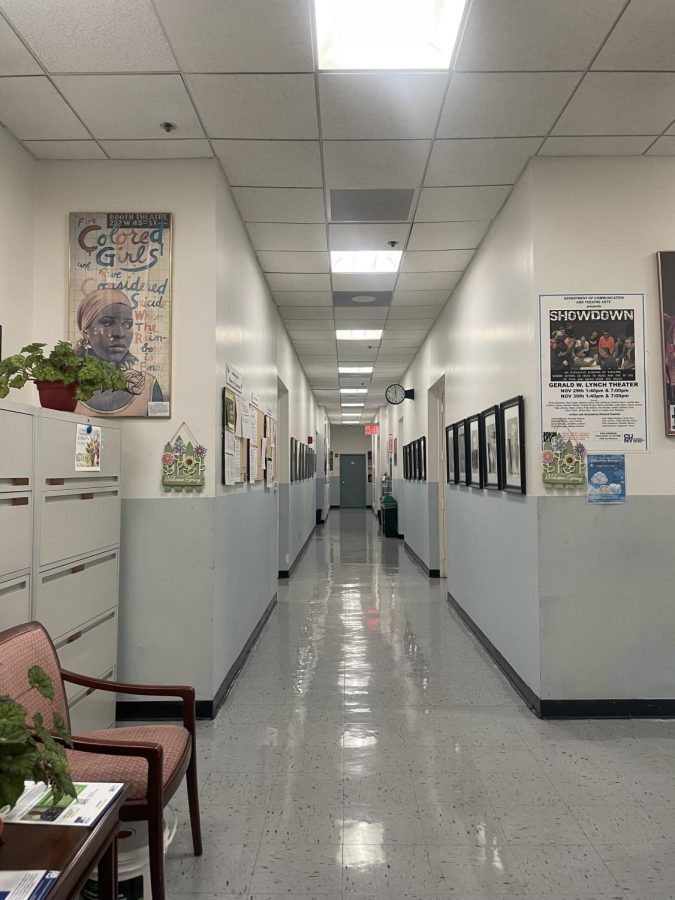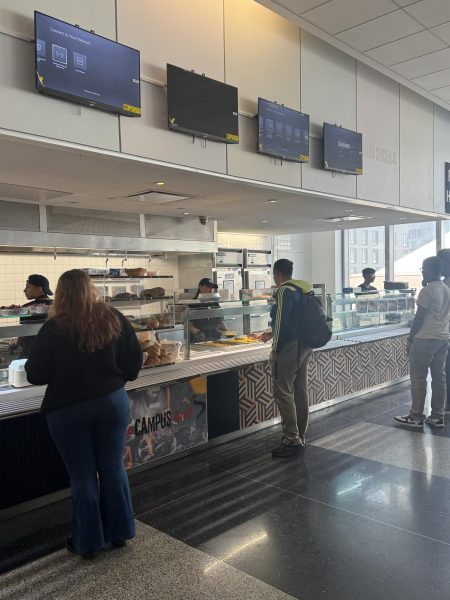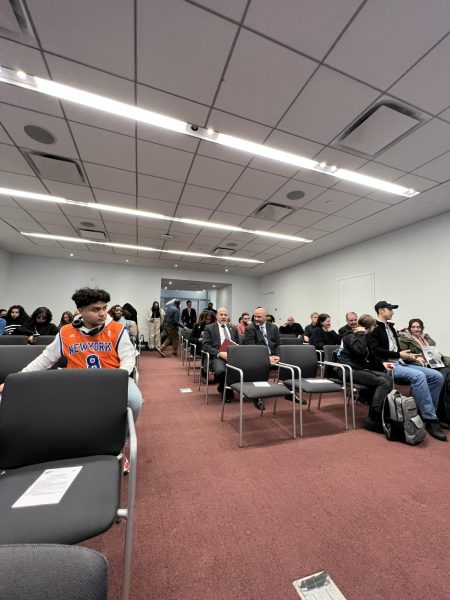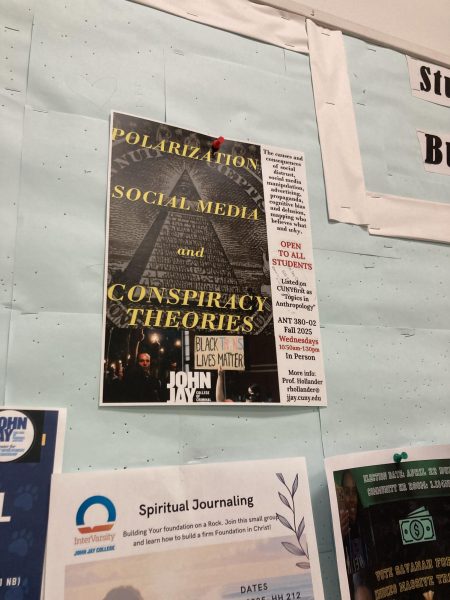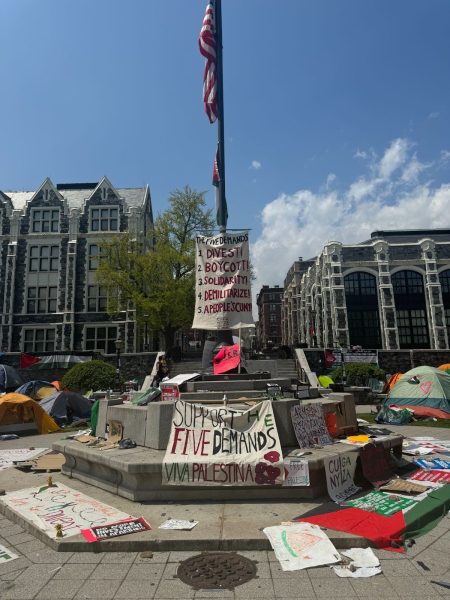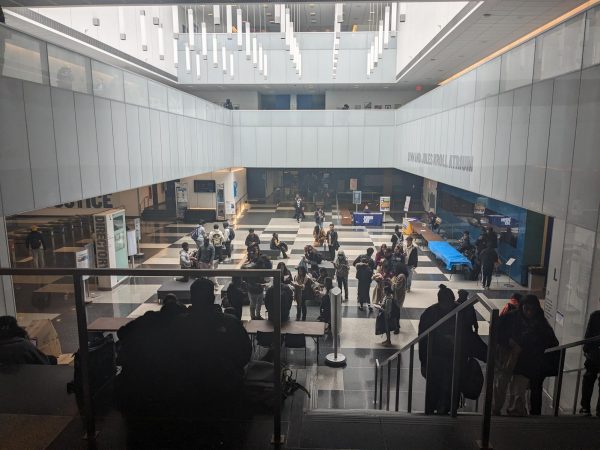John Jay Announces Closure of Communications & Theatre Arts Department
The fate of the department’s courses and its’ adjuncts remain under discussion between the Union and the administration.
After a nine year discussion on the fate of the Communications and Theater Arts Department, Interim-Provost Pease confirmed the department will close in August 2023, upsetting many professors and students.
The long-awaited enactment of the decision to close the department was announced in a statement released by John Jay’s Interim-Provost, Alison Pease, on March 23, 2023 after the status of the department was previously announced in 2014. The department is set to close on August 23, 2023.
However, after discussions between the Union and the college’s administration, they have decided to transfer the courses to the English Department. They are expected to be fully available for students again in Spring 2024.
In 2014, former Provost, Jane Bowers, decided the department would not be given professors from other departments or newly hired professors to save it. In reaction to the decision, students and faculty are upset, questioning the administration’s intentions and transparency.
Interim-Provost Pease shared that she recognizes the importance of theater at John Jay.
“I recognize that theater is an important aspect in the curricular and extracurricular life at John Jay,” said Pease. “I understand that it’s a loss.”
Despite her empathy for students, she said she had to follow protocols given to her.
In December 2022, a faculty member of the department requested to move to a different department, according to the Provost. Pease decided to speak with the tenured professors of the faculty, which at the time was six. The Department Chair, Dr. Seth Baumrin, at the time, decided to resign, which decreased the tenured professors to five.
When a department falls below seven full-time tenured faculty, known as “sun down mode,” it can be terminated.
The remaining tenured professors were then given the chance to transfer to other departments, if they chose to remain at John Jay. Adjuncts and professors without tenure, on the other hand, were informed they would be let go at the end of this semester.
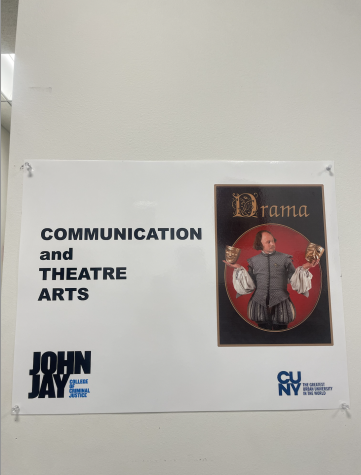
Greg Donaldson, an Associate professor in the Communications Department, expressed his disappointment on the closure. He believes that communications are valuable skills that students use beyond college, especially for Criminal Justice fields. He added that many students believe the Communication courses that he and his colleagues teach are the most valuable ones they’ve taken at John Jay.
“I find it hard to believe that they would dissolve the department,” said Donaldson. “There must be some other reason that I’m not privy to. There must be some financial reason, some other rationale that I haven’t heard yet.”
After pleas from students to save the minor and their professors, the administration and the Union are discussing the fate of adjuncts. They expect them to teach the same courses in the English Department. However, adjuncts with one or three-year contracts who require continuity of employment may lose their jobs because many of the courses won’t be available until Spring 2024.
Nivedita Majumdar, a professor and member of the Union, explained the current discussions going on between the Union and the administration to save the adjuncts.
“We are trying to work right now with the administration, so that they do not lose those contracts because of the gap semester, the fall semester,” said Majumdar. “We do not have a resolution as yet, but we are hoping that we don’t have to go a legal route, if we can’t do it as a settlement.”
Only about 20 students were listed as having Communications or Theater declared as a minor, which the Provost explained was a concern for the department.
Richard Hoehler, a Theater adjunct, shared concern for his teaching career. He is currently searching for other jobs. He holds on to hope that theater will continue at John Jay.
Although Provost Pease stated in her released statement that all faculty in the department was informed, some professors claim that was not the case.
Lindsay Timmington, an adjunct and Drama professor in the department, claims she was never notified of the minor’s status.

“I’ve been teaching here since 2019, and I was never notified of this,” said Timmington. “Nor were any of the other adjuncts in the program.”
Similar to Timmington, Professor Hoehler shared the same thoughts on transparency in the administration and department. He learned of the department’s fate through a rumor and then officially through Sandra Lanzone, a tenured professor, after he began planning for the next student production.
Hoehler recalled when he learned his department was set to close.
“I was starting to plan for that, and she said stop,” said Hoehler. “There’s going to be no department. I was kind of shocked.”
Many students are angry with the college’s administration’s decision after hearing from their professors that they wouldn’t be teaching next semester.
Michelle Ramos, a theater student, started a petition on Change.org directed towards convincing President Karol Mason to change the decision to close the department. The petition has garnered over 1500 signatures with comments from professors and students on their feelings towards the decision.
She was outraged by the news when her professor, Richard Hoehler, told her the department was closing. Right after her class found out, they started the petition.
Ramos has lost hope in their cause to save the department, but believes it is still worth fighting for.
“I really feel like it’s a lost cause, but we’re all willing to fight for it,” said Ramos. “Being able to reconnect with theater in college opened up my eyes and gave me a new sense that this is what I’m meant to do.”
Professor Donaldson expressed his gratitude towards the efforts put in by students. However, he is unsure of whether or not their efforts will change the decision that’s been made.
“It’s nice to feel wanted; it’s nice to feel as if people aren’t glad to see you go,” said Donaldson. “It’s like when you walk out the door, you want to hear everybody cheering. You’d rather hear people complaining that you’re leaving.”
Daniella Canning, a member of the Theatrical Players, shares Ramos’ feelings. She is disappointed in the college’s decision and commented on what her time in the club has done for her.
“I’m upset that the school thinks that theater is expendable when it helps develop valuable soft skills that you can’t get anywhere else,” said Canning. “The amount of dedication put in by everyone has made a strong sense of community in the club and school as a whole.”
Canning also mentioned that the Theatrical Players, which had their “Spring Cabaret” last month, would not be directly affected by the department’s closure.
Interim-Provost Pease shared her admiration for the strong displays of affection towards the department. She recognizes the importance of theater.
“I’m very empathetic to that,” said Pease. “I met with the Student Council, and there were some really passionate defenses by the students as to the meaning of theater and drama for them.”
Although, she does wonder why students aren’t advocating for Communications.
Professors in the department shared that they see the passion students have for theater. Professor Hoehler has never had a class as big as his Acting ll course this semester with twenty students that hardly miss a day of class. He believes theater courses create a sense of community for students.
“A lot of these students have been with me for a couple semesters,” said Hoehler. “The students have formed this little bond, and they are always together. My attendance is off the charts good.”
Theater students are not alone in their sadness to see the department go. Nandika Dayal, a junior and Political Science major, has not taken any Communications or Theater classes but was sad to hear the news because she has seen the impact the courses have had on her peers.
“It’s sad to hear that students won’t be able to have this outlet to express themselves because it has had a great impact on the well-being of many students,” said Dayal.
Professor Majumdar expressed that the Union is in support of students and will continue to work with the administration to safeguard these courses.
“Even though as a Union our primary work relates to employment and work conditions of our members, we saw this as a much bigger issue,” said Majumdar. “An issue that primarily concerns the welfare of students.”

Lauren Braithwaite is currently a junior, majoring in Political Science with a minor in Digital Media and Journalism. At John Jay, Braithwaite is a member...

Karla Saenz is a senior majoring in English and minoring in Counseling. At John Jay, Karla is an active member of the “Times Talk” meetings & is...


